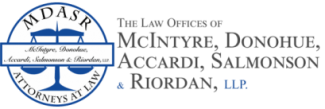February 2023 New York Workers’
Compensation Law Reporter Highlights | News Release
Employers’ video surveillance doesn’t support § 114-a violation
Case name: Joint Industry Board of Electrical Industry, 122 NYWCLR 243 (N.Y. W.C.B. Panel 2022).
Ruling: A Board panel held that the claimant did not violate WCI, Section 114-a for allegedly exaggerating her condition. Also, the panel found the WCI property assessed a Section 114-a (XXI) penalty against the carrier.
What it means: Where the claimant credibly testifies that her pain levels vary from day to day, and this testimony is confirmed by both treating and examining doctors, video surveillance of the claimant performing certain activities not inconsistent with this testimony fails to support an alleged violation of WCI, Section 114-a.
Recent caselaw blocks claimant from receiving decedent’s unaccrued PPD award
Case name: Dannemora, Town of. 122 NYWCLR 220 (N.Y. W.C.B. Panel 2022).
Ruling: In reversing the WCLJ, a Board panel held that the claimant was not entitled to the balance of the decedent’s permanent partial disability award subsequent to the decedent’s death.
What it means: Pursuant to the Court of Appeals decision in Matter of Green v. Dutchess County BOCES, the unaccrued portion of a nonschedule award does not pass to the decedent’s beneficiaries upon the decedent’s death.
Claimant wins benefits for period after leaving restricted work
Case name: Clover Management, Inc., 123 NYWCLR 7 (N.Y. W.C.B. Panel 2023)
Ruling: Upon review of the record, a Board panel held that the evidence supports the WCLJ’s decision rendering awards to the claimant after the date she left restricted work.
What it means: Where the evidence establishes that the claimant separated from her restricted work due to difficulties resulting from performing additional hours of work, her loss of employment is considered involuntary and she is entitled to wage loss benefits for the subsequent period of unemployment.
Housekeeper’s lack of candor regarding medical history hinders claim
Case name: Union College Trustees, 123 NYWCLR 9 (N.Y. W.C.B. Panel 2023).
Ruling: A Board panel found insufficient credible evidence to establish the claim for a low back injury.
What it means: A lack of contemporaneous medical records, a false C-3 form in which the claimant fails to document a prior back injury, and the claimant’s failure to inform her doctors of the prior injury, weighs heavily against the establishment of a low back injury claim.
Bus attendant successfully establishes compensable claim for COVID-19
Case name: We Transport Inc. 122 NYWCLR 222 (N.Y.W.C.B. Panel 2022.)
Ruling: Upon review, a Board panel found the claimant, who alleged she contracted COVID-19 while working as a bus attendant, sustained an accident arising out of and in the course of her employment and that the case weas properly established for COVID-19 and COVID-19 pneumonia.
What it means: Where the claimant worked in a passenger van with a COVID-19 positive coworker for two days during the possible incubation period of two to 14 days, no one in the claimant’s household tested for COVID-19, and she did not travel during this period, the claimant is entitled to the presumption afforded by WCL Section 21 that her COVID-19 arose out of her employment.
Claimant proves leg, hip injuries caused current spine problems
Case name: Deer Park Electric Inc. 122 NYWCLR 223 (N.Y.W.C.B. Panel 2022.)
Ruling: A Board panel held that the claimant demonstrated with competent medical evidence that he sustained consequential neck and thoracic spine injuries and that the claim was properly amended.
What it means: Where credible medical opinion indicates that the claimant’s work-related right leg and hip injuries caused an imbalance to his spine, resulting in additional stress and strain to the ligament structure of the spine and misalignment of the vertebrae, the evidence warrants an amendment to the claim to include consequential neck and thoracic spine injuries.

Leave A Comment